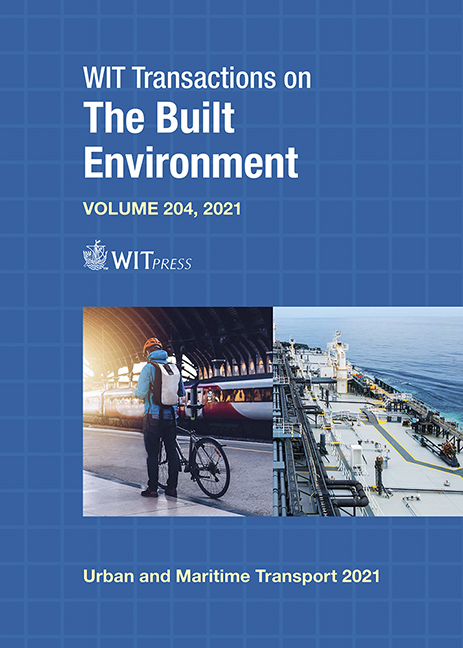ADVANTAGE OF A GREEN AND SMART PORT OF THE FUTURE
Price
Free (open access)
Transaction
Volume
204
Pages
15
Page Range
203 - 217
Published
2021
Paper DOI
10.2495/UT210171
Copyright
Author(s)
JOAO PITA COSTA, IGNACIO LACALLE, MIGUEL A. LLORENTE, OLIVIER LE BRUN, LEONIDAS PTSIKAS, GILDA DE MARCO, CHARLES GARNIER, ERWAN SIMON, ALEX GHERGHINA, ORESTIS TSOLAKIS, DEJAN ŠTEPEC, SERGIO VIVO, RAFAEL VAÑO, STJEPAN PILIČIĆ, TEODORA MILOŠEVIĆ, MATIJA ŠIR
Abstract
The digitalization is undeniably arriving to the port industry. However, modern digital technologies had not pervaded before in the sector because of, mainly, ports’ complexity and heterogeneity as wide ecosystems. When it comes to applying innovative digital tools in maritime ports, a series of additional common barriers are usually faced: (i) unavailability of clear reference in open-source based technologies, (ii) closed-environments and high pricing rates of private providers, (iii) restricting regulations inside and outside the ports preventing port authorities to deploy useful products and (iv) high heterogeneity of objectives, data or perspectives to carry out focused accountable actions. The PIXEL project has helped ports of all sizes to overcome those barriers during the last three years. Throughout a variety of domains of action – including clean energy, environmental performance, smart intermodal transport or machine learning-based maritime data analytics, PIXEL has addressed those hindrances, driving four European ports towards the Port of The Future stand. The different open applications developed form an ecosystem that may be adopted by external ports aiming at improving their digitalisation levels and their operational and environmental performance. For the 2021 edition, we are presenting the suite of tools deployed in the ports in the context of the action, their success stories and best practices, and how they can be leveraged by worldwide maritime transport entities in the future. It is our objective to provide a comprehensive review of their functioning, technical traits and particularities and how they are planned to be exploited by the Consortium. The PIXEL team truly believes that this will mean a milestone in the operational research field for the ports sector. Finally, we aim at offering a perspective on the usage of modern technologies in maritime ports based on the experience and lessons learned in the conduction of PIXEL project and the interaction with other initiatives in the period 2018–2021.
Keywords
maritime industry, internet of things, Big Data, environmental performance port operations





